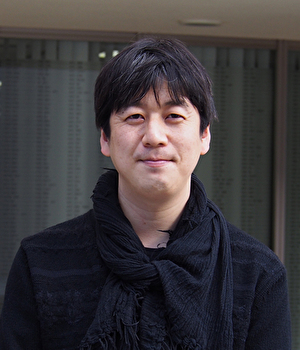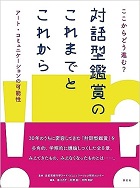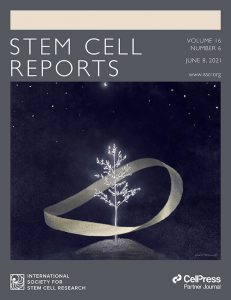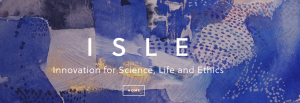
三成 寿作
iPS細胞研究やゲノム研究といった先端生命科学の領域では、研究開発が著しく進んでいます。しかしながら、研究の実用化にむけては、科学の研究だけでなく、その社会的影響の検討にも取り組んでいく必要があります。私たちは、社会的視点にも配慮しながら、先端生命科学のもたらす恩恵を社会に届けられるように努めていきたいと考えています。またこの過程では、国内外を問わず、様々な方々と議論しながら、意見や考えの多様性や広がりを大事にしていきたいと思います。
一緒に研究してみたい、もしくは研究員として働きたい、等のご希望がありましたら、こちらまでご連絡ください。jusaku.minari*cira.kyoto-u.ac.jp(*を@に換えて送信してください)
略歴
2005年 北九州市立大学国際環境工学部 卒業
2006年 北九州市立大学大学院国際環境工学研究科 博士前期課程 短期修了
2010年 北九州市立大学大学院国際環境工学研究科 博士後期課程 修了
2010年 京都大学人文科学研究所 博士研究員
2013年 大阪大学大学院医学系研究科医の倫理と公共政策学教室 助教
2015年 日本医療研究開発機構バイオバンク事業部基盤研究課 課長代理
2016年 大阪大学大学院医学系研究科医の倫理と公共政策学教室 助教
2017年 京都大学iPS細胞研究所上廣倫理研究部門 特定准教授
役職等
- 2023年 環境省
疫学研究に関する審査検討会 委員(~現在) - 2020年 国立研究開発法人日本医療研究開発機構(AMED)
感染症研究開発ELSIプログラム
プログラム・オフィサー(~2022年3月) - 2019年 国立研究開発法人科学技術振興機構(JST)
社会技術研究開発センター
俯瞰・戦略ユニット「ゲノム倫理」研究会 会員(~現在)
https://www.jst.go.jp/ristex/internal_research/elsi/genome/ - 2019年 HeLEXとの連携(オックスフォード大学法学部)
https://www.law.ox.ac.uk/people/jusaku-minari - 2018年 文部科学省
科学技術・学術審議会生命倫理安全部会 委員(~現在) -
2017年 国立研究開発法人科学技術振興機構(JST)
未来社会創造事業
研究開発運営会議 委員(~2021年3月) -
2016年 国立研究開発法人日本医療研究開発機構(AMED)
ゲノム医療実現推進プラットフォーム事業
プログラム・オフィサー(~現在) -
2016年 国立研究開発法人日本医療研究開発機構(AMED)
研究倫理に関する情報共有と国民理解の推進事業
プログラム・オフィサー(~2018年3月)
主な研究成果
研究・教育活動
- 「科学技術イノベーション政策のための科学」研究開発プログラム
最終シンポジウム「研究開発と政策実装 −科学的知見をいかにして政策に反映するか−」
『先端生命科学を促進する先駆的ELSIアプローチ』(2025年12月15日) - Invited talk.
J. Minari.
Art, Ethics and Genomic Progress: Insights from Japan.
Leuven Institute for Genetics and Society (LIGAS),
KU Leuven, Belgium, 2025. - Invited talk.
J. Minari and K. Takashima.
Ethical and legal considerations of biomedical research: A Japanese perspective.
Trends and Dynamics in Health and Emerging Technologies,
University of Oxford (Faculty of Law), Oxford, UK, 2025. - 木津川市情報発信基地キチキチ共催 特別ワークショップ『サイエンス×アートを体感 てん・テン・点−感じる動画プロジェクト−』 開催報告(CiRAニュースレター)
フライヤー(PDF)(2025年6月15日、29日) - 三成寿作「開幕前日からの参加を体験して」『亀山トリエンナーレ2024記録誌』(PDF)(2025年6月1日)
- Invited talk.
J. Minari.
Ethics in action: Japan's experience with emerging technology in medical care and clinical research.
Universiti Malaya Medical Centre, Malaysia, 2025. - Invited participants.
J. Minari.
Tokyo workshop: Accelerating the tech-driven bioeconomy.
World Economic Forum, Tokyo, 2024. - JST/CREST「ゲノム合成」2024年度 領域会議プログラム 『「ゲノム倫理」研究会の取組み:ケーススタディの紹介とアートやデザインへの着目』(2024年10月30-31日)
- Interviews by the Center for ELSI Resources & Analysis (CERA), the US, 2024.
https://elsihub.org/news/elsi-abroad-spotlight-japan
(CERA is co-led by the Stanford Center for Biomedical Ethics and the Division of Ethics at Columbia University, in partnership with The Hastings Center and the Case Western Reserve University Department of Bioethics) - Invited panelists.
J. Minari.
UK-Japan engineering biology seminar: Panel discussion on responsible research innovation. British Embassy Tokyo, 2024. - Reviewers (Individuals)
Laboratory biosecurity guidance. World Health Organization, 2024.(PDF)
https://iris.who.int/handle/10665/377754 - JST・RISTEX 戦略的創造研究推進事業
『パンデミックのELSIアーカイブ化による感染症にレジリエントな社会構築』(京都大学・児玉聡)
ELSIカタルシル #007 「学術の隙間、予定不調和、違和感の大切さについて」(PDF)(2024年4月21日)
https://www.pandemic-philosophy.com - 駐日英国大使館 日英エンジニアリング・バイオロジーセミナー&レセプション ~戦略的連携と責任あるイノベーション~
パネルディスカッションにおけるスピーカーとして登壇
(PDF)(2024年3月14日) - 「曖昧で確かなもの」tupera tupera 作 笠間絹子,三成寿作 企画 高橋マキ,mondo 刀根彰吾・安間仁美,株式会社サンエムカラー 協力(2023年,カサネグラフィカ,78.9 × 59.2 cm)

https://www.cira.kyoto-u.ac.jp/j/research/finding/240216-100000.html<本作品の関連記事>
2024年9月17日 CiRAニュースレター
【小中学生向けのワークショップを開催しました】
https://www.cira.kyoto-u.ac.jp/j/pressrelease/seminar/240917-100000.html2024年6月26日 CiRAニュースレター
【科学を身近に感じるアートをつくる ~制作秘話と作品に込めた想い~】
https://www.cira.kyoto-u.ac.jp/j/pressrelease/newsletter/240626-000001.html2024年5月15日 AWRD
【tupera tuperaのつまみ食いのススメ。多様なアプローチとコミュニケーションから生まれる創造性】
https://awrd.com/blog/2024/5/tupera-tupera2024年2月20日 文教速報デジタル版
【生命科学と社会をテーマにした絵画「曖昧で確かなもの」京大iPS研が無料公開】 - 「ここからどう進む? 対話型鑑賞のこれまでとこれから アート・コミュニケーションの可能性」 京都芸術大学アート・コミュニケーション研究センター 監修 福のり子,北野諒,平野智紀 編 淡交社(2023年9月18日)

https://www.book.tankosha.co.jp/shopdetail/000000001917/ - 北海道大学 先端生命科学のデュアルユース性(2023年度自然史科学特別講義IV・2)(PDF)(2023年9月4日~5日)
https://ssn.cambria.ac/archives/2668 - 「トラタのりんご」 nakaban 作 三成寿作 企画 岩波書店(2023年3月16日)

https://www.iwanami.co.jp/book/b621811.html<本書籍の関連記事>
2025年7月4日 木更津市立図書館
【2025年夏休みにおすすめの本 小学校3・4年生 木更津市立図書館】(PDF)
https://www.city.kisarazu.lg.jp/soshiki/kyoikuiinkai/toshokan/1/4093.html2025年3月16日 京都大学新聞
【京大生の読書傾向を覗き見 年間ルネベスト-2024- 酸っぱいりんごも悪くない】
https://www.kyoto-up.org/archives/106332024年2月5日 北海道新聞
【<こどもの本棚 ○○な本ありますか?>テーマ「りんご」】2023年12月20日 松本経済新聞
【松本の書店で絵本「トラタのりんご」原画展 光のまぶしさや生命力感じる作品】2023年4月30日 産経ニュース
【『トラタのりんご』 nakaban作】 - Oral presentations.
J. Minari and A. Kiriyama.
A Japanese perspective on regulation and public communication regarding human-virus research.
Cell Symposium: Viruses in Health and Disease. Sitges, Spain, 2023.
https://www.cell-symposia.com/Viruses-2023/conference-program.html - セコム科学技術振興財団 特定領域研究助成 インタビュー(2022年10月14日)
https://www.secomzaidan.jp/tokutei/elsi2/interview/minari/index.html - ReDURC「デュアルユースのまなざし」(動画)日本デザインセンター(2022年9月1日)

https://www.redurc.com/stories(HP)
https://www.instagram.com/re_durc/(Instagram) - 国立国会図書館科学技術に関する調査プロジェクト2021シンポジウムゲノム編集技術ー最前線で生じつつある課題と展望ー 「ゲノム編集技術をめぐる規制等について」(PDF)(2022年2月22日)
https://www.ndl.go.jp/jp/diet/publication/document/2022/index.html - AMED・JST-RISTEX連携セッション COVID-19における倫理的・法制度的・社会的課題(ELSI)を考える ―多様な研究開発の視点から― (2021年11月23日)
指定発言者・討論参加者として登壇
https://www.amed.go.jp/news/event/20211123_ELSI_.html<本連携セッションの関連記事>
三成寿作「ゲノム倫理をめぐる4つの問い」(WHO勧告から考える「生命科学のルール」)
及び「パンデミックの論点」(研究者たちが語るCOVID-19のELSI)
RInCAジャーナル(JST/RISTEX)(PDF)(2022年2月28日)
https://www.jst.go.jp/ristex/rinca/discours/journal.html#rj02 - 第28回 CiRAカフェ(2021年10月30日オンライン)
https://www.youtube.com/watch?v=w3Qzdz-3DWo - 京都大学 高大連携事業サマープログラム2021『生命科学と社会との間』(web)(2021年9月6日~10日、10月25日~29日)
- 大阪大学・京都大学 公共圏における科学技術・教育研究拠点(STiPS)つなぐ人たちの働き方(web)(2021年7月6日)
http://stips.jp/20210706/ - The Innovation for Science, Life, and Ethics (ISLE) project
https://www.islepj.com/
インターンシップ生の受け入れ
早稲田大学(先進理工学研究科, 修士1年生, 2025年)
[CiRA研究インターンシップ]
東京藝術大学(美術研究科, 博士後期課程1年生, 2025年)
[CiRA研究インターンシップ]
Massachusetts Institute of Technology, USA (Biology, 2nd year student, 2025)
[MIT-Japan Program (MISTI)]
University College London, UK (Neuroscience, 3rd year student, 2024)
[CiRA Research Internship Program]
University of Bristol, UK (Medical School, 6th year student, 2023)
[Self-funded]
Imperial College London, UK (Department of Science, 2nd year student, 2019)
[CiRA Research Internship Program]
大阪大学(工学部, 4回生, 2019年)
[CiRA研究インターンシップ]
論文業績等
- 鈴木美香, 黒田雅子, 笠間絹子, 三成寿作「ゲノム医療の実現をめぐる制度的・倫理的・教育的考究」小児内科, Vol. 58(2), pp 143–148, 2026.
- 三成寿作「ゲノム関連技術と社会とをつなぐアート・コミュニケーション」『ゲノムと社会 -つくる生命、ゆれる価値観-』JST RISTEX「ゲノム倫理」研究会 編. 共同文化社. pp 232–241, 2026.
https://www.kyodo-bunkasha.net/items/132603974 - T. Kubota, A. Raz and J. Minari. Invigorating ELSI: Reflexive approaches to enhance policy development. Trends Genet, 41:955–957, 2025.
- TH. Sasongko, Gunadi, BP. Hoh, J. Minari, SW. Seow and V. Shotelersuk. The ASEAN genome consortium: Advancing equitable precision medicine through regional solidarity. The Lancet Regional Health – Western Pacific (Correspondence), 60:101611, 2025.
- 三成寿作「ゲノム医療の適切な発展に資するAIの活用のあり方をめぐって」遺伝子医学, Vol. 14, pp 75–80, 2024.
- O. Andrusier, A. Raz and J. Minari. Cultivating awareness of donation in cutting-edge allogenic cell therapies. Cell Stem Cell (Letter), 31:947–948, 2024.
- 三成寿作「生命科学・医科学における課題と展望」『生命倫理学概論』丸山マサ美 編. 大学教育出版. pp 132–147, 2024.
- A. Hibino, J. Minari, K. Takahashi, Y. Sugiyama and S. Kawana. The cultural construction of cellular agriculture food: Through the lens of the whole-parts framework for meat. Frontiers in Sustainable Food Systems (Perspective), 8:1358012, 2024.
- H. Gaydarska, K. Takashima, S. Shahrier, A. Raz and J. Minari. The interplay of ethics and genetic technologies in balancing the social valuation of the human genome in UNESCO declarations. European Journal of Human Genetics, 32:725–730, 2024.
- G. Yoshizawa, N. Shinomiya, S. Kawamoto, N. Kawahara, D. Kiga, K. Hanaki and J. Minari. Limiting open science? Three approaches to bottom-up governance of dual-use research of concern. Pathogens and Global Health (Review), 118:285–294, 2024.
- S. Shahrier, H. Gaydarska, K. Takashima, G. Yoshizawa and J. Minari. A conceptual analysis of public opinion regarding genome research in Japan. Frontiers in Genetics (Original Research), 14:1170794, 2023.
- A. Raz, J. Minari, S. Schicktanz, T. Sharon and G. Werner-Felmayer. Data-intensive medicine and healthcare: Ethical and social implications in the era of artificial intelligence and automated decision-making. Frontiers in Genetics (Editorial), 14:1280344, 2023.
- 三成寿作「遺伝情報や一般的なバイオバンクに関する規律について」『ヒト生体試料・データ取扱い実践ハンドブック』森崎隆幸,西原広史,宮地勇人 監修 荻島創一 編集. 羊土社. pp 242–246, 2023.
- K. Takashima, J. Minari, S. Chan and K. Muto. Hope for the best, but prepare for the worst: Social media posted by participants in stem cell clinical trials. Regenerative Therapy (Commentary), 24:294–297, 2023.
- A. Raz and J. Minari. AI-driven risk scores: Should social scoring and polygenic scores based on ethnicity be equally prohibited? Frontiers in Genetics (Opinion), 14:1169580, 2023.
- A. Raz, J. Minari, K. Takashima, H. Gaydarska, Y. Hashiloni-Dolev and R. Horn. Old and new challenges regarding comparable and viable data sharing in population-scale genomic research. European Journal of Human Genetics (Viewpoint), 31:617–618, 2023.
- K. Takashima, T. Soma, K. Muto, K. Nishida and J. Minari. Learning to listen: A complementary approach to informed consent for patients with visual impairments. Stem Cell Reports (Forum), 17:2582–2584, 2022.
- J. Meszaros, J. Minari and I. Huys. The future regulation of artificial intelligence systems in healthcare services and medical research in the European Union. Frontiers in Genetics (Policy and Practice Reviews), 13:927721, 2022.
- A. Raz, S. Timmermans, G. Eyal, K. Brothers and J. Minari. Challenges for precision public health communication in the era of genomic medicine. Genetics in Medicine (Special Article), 24:9, 2022.
- N. Shinomiya, J. Minari, G. Yoshizawa, M. Dando and L. Shang. Reconsidering the need for gain-of-function research on enhanced potential pandemic pathogens in the post-COVID-19 era. Frontiers in Bioengineering and Biotechnology (Policy and Practice Reviews), 10:966586, 2022.
- J. Minari, N. Shinomiya, K. Takashima and G. Yoshizawa. Contiguous governance of synchronic and diachronic changes for the use of genome editing technologies. Frontiers in Political Science (Perspective), 4:825496, 2022.
- R. Milne, K. I. Morley, M. A. Almarri, J. Atutornu, E. E. Baranova, P. Bevan, M. Cerezo, Y. Cong, A. Costa, C. Feijao, C. De Freitas, J. Fernow, P. Goodhand, Q. Hasan, A. Hibino, G. Houeland, H. C. Howard, S. Z. Hussain, C. I. Malmgren, V. L. Izhevskaya, A. Jędrzejak, C. Jinhong, M. Kimura, E. Kleiderman, K. Liu, D. Mascalzoni, Á. Mendes, J. Minari, D. Nicol, E. Niemiec, C. Patch, B. Prainsack, M. Rivière, L. Robarts, J. Roberts, V. Romano, H. A. Sheerah, J. Smith, A. Soulier, C. Steed, V. Stefànsdóttir, C. Tandre, A. Thorogood, T. H. Voigt, N. Wang, G. Yoshizawa and A. Middleton. Return of genomic results does not motivate intent to participate in research for all: Perspectives across 22 countries. Genetics in Medicine, 24:1120–1129, 2022.
- J. Minari, M. Yokono, K. Takashima, M. Kokado. R. Ida and Y. Hishiyama. Looking back: Three key lessons from 20 years of shaping Japanese genome research regulations. Journal of Human Genetics (Perspective), 66:1039–1041, 2021.
- K. Takashima, M. Morrison and J. Minari. Reflection on the enactment and impact of safety laws for regenerative medicine in Japan. Stem Cell Reports (Perspective), 16:6, 2021.

同誌の表紙に掲載されました。詳細はこちら
- R. Milne, KI. Morley, MA. Almarri, S. Anwer, J. Atutornu, EE. Baranova, P. Bevan, M. Cerezo, Y. Cong, A. Costa, C. Critchley, J. Fernow, P. Goodhand, Q. Hasan, A. Hibino, G. Houeland, H. C. Howard, S. Z. Hussain, C. I. Malmgren, V. L. Izhevskaya, A. Jędrzejak, C. Jinhong, M. Kimura, E. Kleiderman, B. Leach, K. Liu, D. Mascalzoni, Á. Mendes, J. Minari, D. Nicol, E. Niemiec, C. Patch, J. Pollard, B. Prainsack, M. Rivière, L. Robarts, J. Roberts, V. Romano, H. A. Sheerah, J. Smith, A. Soulier, C. Steed, V. Stefànsdóttir, C. Tandre, A. Thorogood, T. H. Voigt, N. Wang, A. V. West, G. Yoshizawa and A. Middleton. Demonstrating trustworthiness when collecting and sharing genomic data: Public views across 22 countries. Genome Medicine, 13:92, 2021.
- 三成寿作「ゲノム情報と研究,社会」BIO Clinica, Vol. 36, pp 51–55. 2021.
- K. Mikami, A. Ema, J. Minari and G. Yoshizawa. ELSI is our next battlefield. East Asian Science, Technology and Society: An International Journal, 15:86–96, 2021.
- J. Minari, G. Yoshizawa and N. Shinomiya. COVID-19 and the boundaries of open science and innovation: Lesson of traceability from genomic data sharing and biosecurity. EMBO Reports, e51773, 2020.
- A. Middleton, R. Milne, M. A. Almarri, S. Anwer, J. Atutornu, E. E. Baranova, P. Bevan, M. Cerezo, Y. Cong, C. Critchley, J. Fernow, P. Goodhand, Q. Hasan, A. Hibino, G. Houeland, H. C. Howard, S. Z. Hussain, C. I. Malmgren, V. L. Izhevskaya, A. Jędrzejak, C. Jinhong, M. Kimura, E. Kleiderman, B. Leach, K. Liu, D. Mascalzoni, A. Mendes, J. Minari, N. Wang, D. Nicol, E. Niemiec, C. Patch, J. Pollard, B. Prainsack, M. Rivière, L. Robarts, J. Roberts, V. Romano, HA. Sheerah, J. Smith, A. Soulier, C. Steed, V. Stefànsdóttir, C. Tandre, A. Thorogood, T. H. Voigt, A. V. West, G. Yoshizawa and K. I. Morley. Global public perceptions of genomic data sharing: What shapes the willingness to donate DNA and health data? The American Journal of Human Genetics, 107:743–752, 2020.
- M. Prictor, M. A. Lewis, A. J. Newson, M. Haas, S. Baba, H. Kim, M. Kokado, J. Minari, F. Molnár-Gábor, B. Yamamoto, J. Kaye and H. J. A. Teare. Dynamic consent: An evaluation and reporting framework. Journal of Empirical Research on Human Research Ethics, 15:175–186, 2020.
- 吉澤剛, 三成寿作「アートの島でひらく未来 次の自然と次の世代 : 佐久島、佐渡島、豊島における対話から」季刊「しま」(日本離島センター), Vol. 261, pp 68–75, 2020.
- A. Hibino, G. Yoshizawa and J. Minari. Meaning of ambiguity: A Japanese survey on synthetic biology and genome editing. Frontiers in Sociology (Brief Research Report), 4:81, 2019.
- Y. Hishiyama, J. Minari and N Suganuma. The survey of public perception and general knowledge of genomic research and medicine in Japan conducted by the Japan Agency for Medical Research and Development. Journal of Human Genetics, 64:397–407, 2019.
- 三成寿作「ゲノム医療の実現化をめぐる政策的・倫理的・社会的対応」BIO Clinica, Vol. 33, pp 63–66, 2018.
- 三成寿作「ゲノム医療」『バイオエシックス:その継承と発展』丸山マサ美 編. 川島書店. pp 123–142, 2018.
- J. Minari, K. B. Brothers and M. Morrison. Tensions in ethics and policy created by National Precision Medicine Programs. Human Genomics (Opinion Article), 12:22, 2018.
- 三成寿作, 加藤治, 櫻井美佳, 齋藤あき「AMEDにおけるゲノム医療実現に向けた新たなアプローチ:データシェアリングポリシーの策定とその舞台裏」遺伝子医学MOOK, Vol. 33, pp 168–172, 2018.
- J. Kaye, S. F. Terry, E. Juengst, S. Coy, J. R. Harris, D. Chalmers, E. S. Dove, I. Budin-Ljosne, C. Adebamowo, E. Ogbe, L. Bezuidenhout, M. Morrison, J. T. Minion, M. J. Murtagh, J. Minari, H. Teare, R. Isasi, K. Kato, E. Rial-Sebbag, P. Marshall, B. Koenig and A. Cambon-Thomsen. Including all voices in international data-sharing governance. Human Genomics (Opinion Article), 12:13, 2018.
- 三成寿作「『しま』から学ぶ:継承性, 連帯性, 創造性(しまと科学技術, そしてアートを考える)」季刊「しま」(日本離島センター), Vol. 253, pp 56–59, 2018.
- 三成寿作, 吉澤剛「ゲノム情報にかかる医科学研究の倫理政策と市民関与」医療・生命と倫理・社会, Vol. 14, pp 52–60, 2017.
- V. Coathup, H. Teare, J. Minari, G. Yoshizawa, J. Kaye, M. Takahashi and K. Kato. Using digital technologies to engage with medical research: Views of myotonic dystrophy patients in Japan. BMC Medical Ethics, 17:51, 2016.
- D. Chalmers, D. Nicol, J. Kaye, J. Bell, A. V. Campbell, C. W. Ho, K. Kato, J. Minari, C. H. Ho, C. Mitchell, F. Molnár-Gábor, M. Otlowski, D. Thiel, S. M. Fullerton and T. Whitton. Has the biobank bubble burst? Withstanding the challenges for sustainable biobanking in the digital era. BMC Medical Ethics (Review), 17:39, 2016.
- 三成寿作「パーソナルゲノム時代の解析データの共有:データ公開・共有方針と倫理的対応」医療・生命と倫理・社会, Vol. 12, pp 105–114, 2015.
- J. Minari, H. Teare, C. Mitchell, J. Kaye and K. Kato. The emerging need for family-centric initiatives for obtaining consent in personal genome research. Genome Medicine (Comment), 6:118, 2014.
- J. Minari, D. Chalmers and K. Kato. Return of genetic research results: the Japanese experience and its implications for the international debate. SCRIPTed (Analysis), 11:180–192, 2014.
- G. Yoshizawa, C. W. Ho, W. Zhu, C. Hu, Y. Syukriani, I. Lee, H. Kim, D. F. Tsai, J. Minari and K. Kato. ELSI practices in genomic research in East Asia: Implications for research collaboration and public participation. Genome Medicine (Review), 6:39, 2014.
- J. Minari, T. Shirai and K. Kato. Ethical considerations of research policy for personal genome analysis: The approach of the Genome Science Project in Japan. Life Sciences, Society and Policy, 10:4, 2014.
- 三成寿作, 加藤和人「パーソナルゲノム時代の研究ガバナンス」 医薬ジャーナル, Vol. 50, pp 55–58, 2014.

